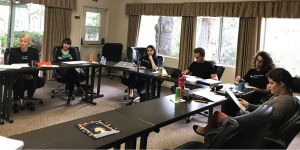 On a recent August weekend, we held the second CES dissertation workshop at the Marconi Conference Center with our five 2018-2019 awardees and a terrific group of faculty and other guests. Much of the time was devoted to providing feedback to the graduate students on their projects, but there was also time for good food, discussion of politics, hiking, and informal conversations. This year we added a session devoted to writing op-ed pieces led by Carole Joffe, a member of the CES Advisory Board and a well-known commentator on issues of reproductive justice. Watch this space for op-eds that the CES awardees have written.
On a recent August weekend, we held the second CES dissertation workshop at the Marconi Conference Center with our five 2018-2019 awardees and a terrific group of faculty and other guests. Much of the time was devoted to providing feedback to the graduate students on their projects, but there was also time for good food, discussion of politics, hiking, and informal conversations. This year we added a session devoted to writing op-ed pieces led by Carole Joffe, a member of the CES Advisory Board and a well-known commentator on issues of reproductive justice. Watch this space for op-eds that the CES awardees have written.
Also present this time was Paola Maynard-Noll of our sister organization, the Scholars Strategy Network. Paola shared her rich experience in connecting scholarship to legislators at both the state and federal levels. Monica Prasad, from the Sociology Department at Northwestern University, talked to the group about her initiative for “Problem-Solving Sociology” for which she has gotten a grant from the National Science Foundation. Click here for her call for applications. She is organizing workshops for pre-dissertation graduate students to help them develop research projects that would simultaneously address social problems while also deepening sociological understandings. We also heard from Megan Brown, an inaugural year CES awardee, who is currently directing a Liberal Arts Action Lab that involves students from Trinity College and Capitol Community College in community projects in the Hartford, Connecticut area. Last year’s projects are described on the Action Lab’s web page.
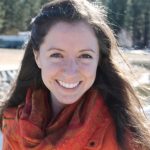 Issues of race, gender, and class divisions ran through all five of this year’s research projects. Deisy Del Real (Sociology UCLA) is studying how the nations of Mercosur—a Latin American free trade zone—have negotiated a system that provides migrants that move from one Mercosur nation to another with substantive rights even when they are not employed. The paper she shared with us focused on how class politics in the tiny nation of Paraguay temporarily blocked the implementation of the regional agreement that is protective of immigrant rights.
Issues of race, gender, and class divisions ran through all five of this year’s research projects. Deisy Del Real (Sociology UCLA) is studying how the nations of Mercosur—a Latin American free trade zone—have negotiated a system that provides migrants that move from one Mercosur nation to another with substantive rights even when they are not employed. The paper she shared with us focused on how class politics in the tiny nation of Paraguay temporarily blocked the implementation of the regional agreement that is protective of immigrant rights.
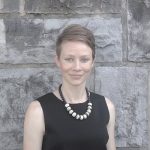 Madeline Pape’s (Sociology, University of Wisconsin) project focuses on how international track and field organizations cling to a male-female gender binary in the face of scientific evidence and mobilization by transgender activists. Her paper focused on how the relevant sports agencies are disqualifying women runners, mostly from Africa and India, because their bodies produce “too much” testosterone.
Madeline Pape’s (Sociology, University of Wisconsin) project focuses on how international track and field organizations cling to a male-female gender binary in the face of scientific evidence and mobilization by transgender activists. Her paper focused on how the relevant sports agencies are disqualifying women runners, mostly from Africa and India, because their bodies produce “too much” testosterone.
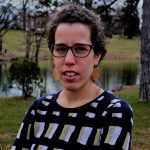 Idit Fast (Sociology, Rutgers) is doing an ethnographic study of several schools in New York City that are engaged in a voluntary project to achieve higher levels of racial integration. Her focus is on how parents, mostly mothers, in these schools perceive and manage conflicts that involve class, race, and cultural values, including the accommodation of gender fluid children.
Idit Fast (Sociology, Rutgers) is doing an ethnographic study of several schools in New York City that are engaged in a voluntary project to achieve higher levels of racial integration. Her focus is on how parents, mostly mothers, in these schools perceive and manage conflicts that involve class, race, and cultural values, including the accommodation of gender fluid children.
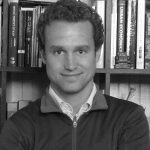 Chris Herring (Sociology, U.C. Berkeley) has been studying homelessness in San Francisco with a focus on the street, the shelters, and the various organizations that are on the frontline of the city government’s responses to homelessness. The paper he circulated focused on how city workers decide who is eligible for new shelter spaces that have more lenient rules than other shelter spaces.
Chris Herring (Sociology, U.C. Berkeley) has been studying homelessness in San Francisco with a focus on the street, the shelters, and the various organizations that are on the frontline of the city government’s responses to homelessness. The paper he circulated focused on how city workers decide who is eligible for new shelter spaces that have more lenient rules than other shelter spaces.
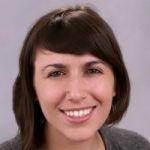 Nantina Vgontzas (Sociology, NYU) has done fieldwork in fulfillment warehouses for an online retailer in both Germany and the U.S. She shows the ways that increasing automation is disempowering employees in both places and how the company’s strategies have been effective in weakening the union’s capacity to mount resistance in the German warehouse.
Nantina Vgontzas (Sociology, NYU) has done fieldwork in fulfillment warehouses for an online retailer in both Germany and the U.S. She shows the ways that increasing automation is disempowering employees in both places and how the company’s strategies have been effective in weakening the union’s capacity to mount resistance in the German warehouse.
The frequent points of intersection across these papers made for a very rich conversation. Faculty commentators included Deborah Gould (Sociology, U.C. Santa Cruz), Luis Guarnizo (Community Development, UC Davis), Vicki Smith (Sociology, U.C. Davis), Jamie Peck (Geography, University of British Columbia), and Monica Prasad.
One of the most interesting parts of the conversation involved teasing out different forms of engaged scholarship. At one end of the spectrum is conventional scholarship that is inspired by opposition to the injustice of existing social hierarchies. At the other end is activist scholarship in which scholars work closely with social movement activists both in shaping the research and in developing movement strategies. In between these two poles, there is community-based research where the investigator formulates the research questions in close collaboration with community members. There is also after-the-fact engagement where the researcher works hard to disseminate his or her findings to legislators and the public in order to produce changes in public policy. Each of these ways of doing engaged scholarship produces its own set of ethical and professional dilemmas. At future workshops, we plan to address some of these dilemmas directly.
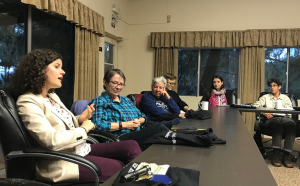 Finally, this year’s fellows indicated that they want to be in contact with fellows from previous years to get advice and to build stronger networks of engaged scholars. With fourteen present and past fellows, it makes sense to connect them. So we have created a forum page where CES awardees, past and present will be able to exchange ideas.
Finally, this year’s fellows indicated that they want to be in contact with fellows from previous years to get advice and to build stronger networks of engaged scholars. With fourteen present and past fellows, it makes sense to connect them. So we have created a forum page where CES awardees, past and present will be able to exchange ideas.